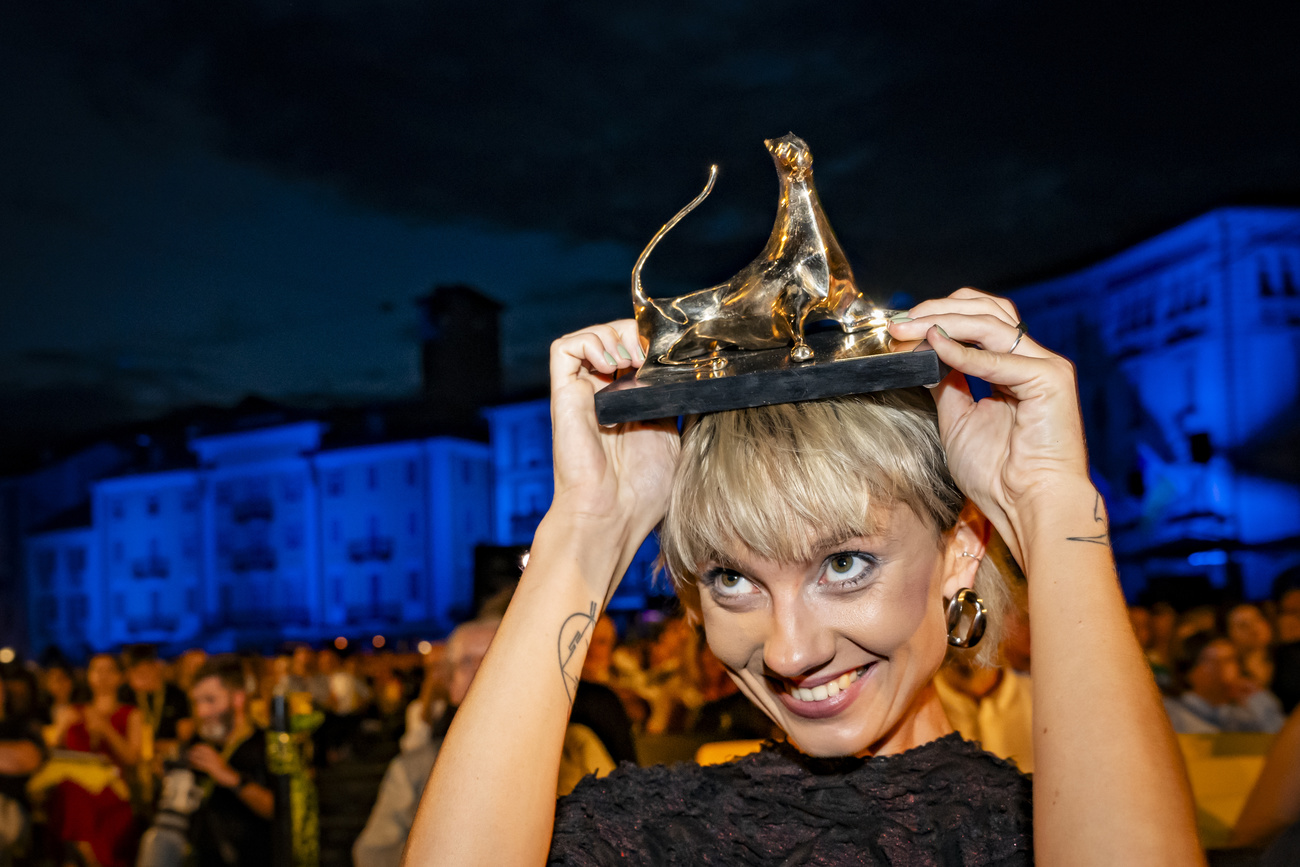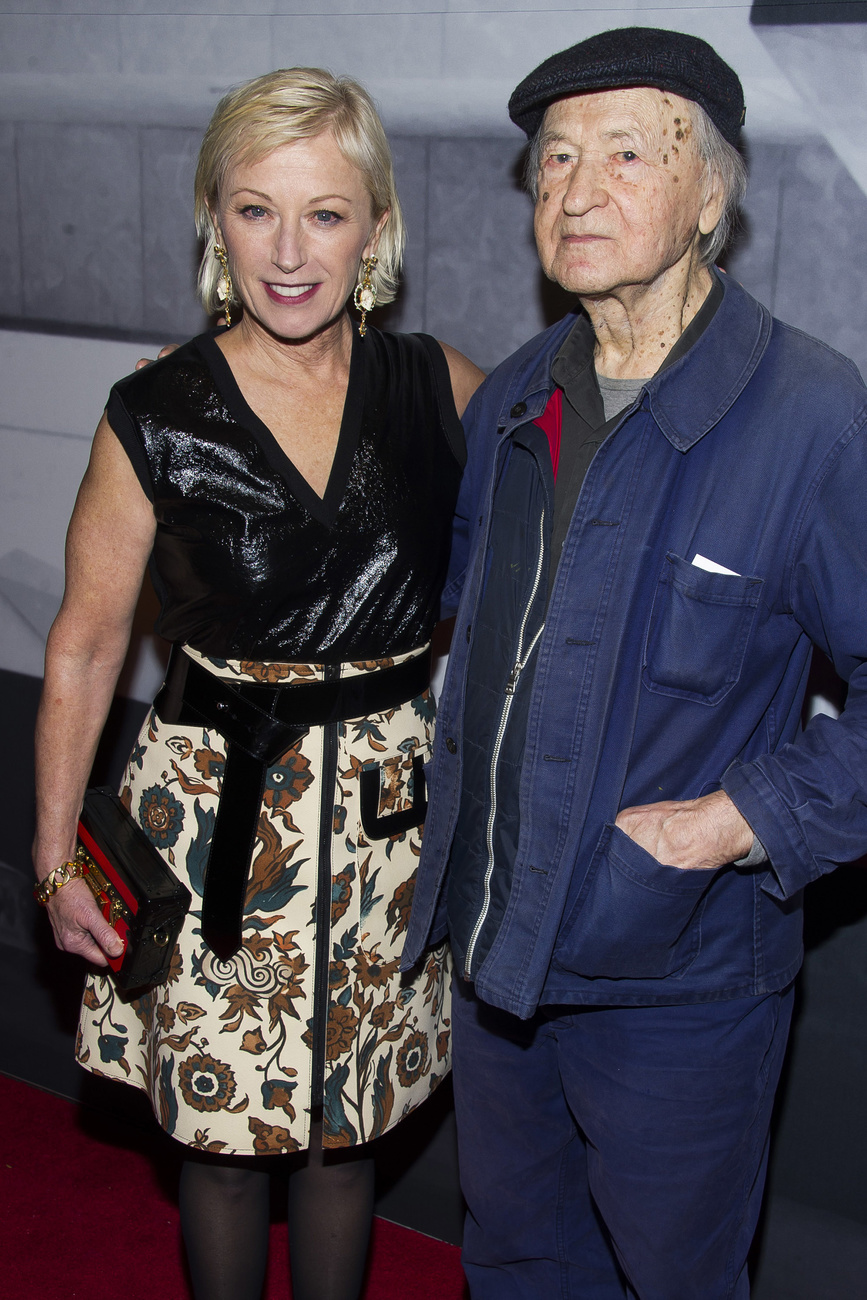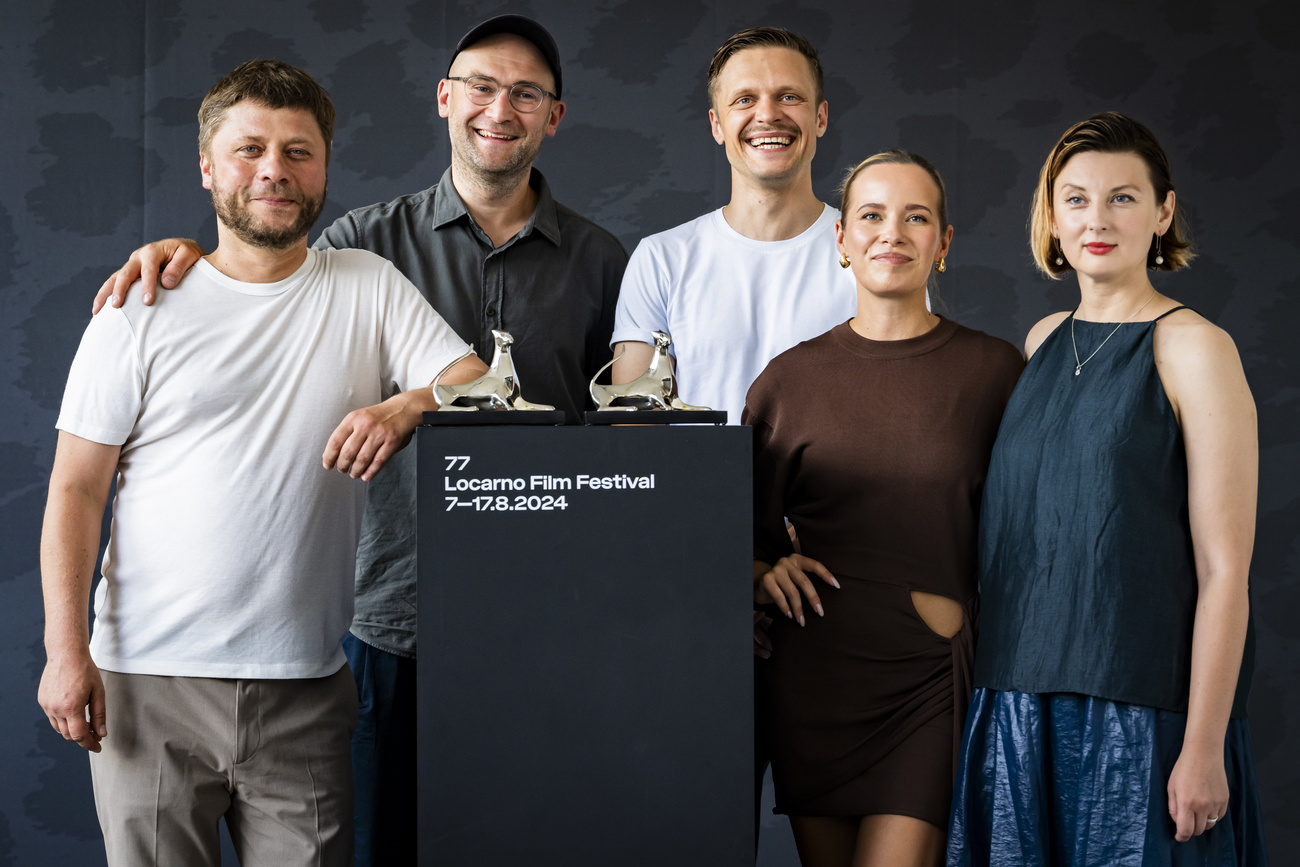A double triumph in Locarno raises the profile of Lithuanian cinema

At the Locarno Film Festival in 2024, two Lithuanian films swept up five prizes, including the Golden Leopard. Our critic takes a look at the Lithuanian film industry and its place within the Swiss cinema landscape and festival circuits in the light of its recent successes.
While festival selections are not a reliable basis for discerning potential trends in the film industry, when a country that is not one of the industry’s traditional heavyweights wins a large number of festival plaudits, it is worth taking a closer look at cinematic developments there. Sometimes these successes signal a new national movement in contemporary arthouse cinema — the Greek Weird WaveExternal link, for instance, or the Romanian New WaveExternal link.
At Switzerland’s Locarno Film Festival last year, two Lithuanian films won five awards in the festival’s main competition, Concorso internazionale. Saulė Bliuvaitė’s Akiplėša / Toxic (2024) won the Golden Leopard, awarded to the best film, as well as the Swatch First Feature Award and the Ecumenical Jury Award. Laurynas Bareiša’s Seses / Drowning Dry (2024) took home the Best Director and Best Performance awards.
However, it is still too early to speak of a movement. Even today, the first – and perhaps only – name that comes to mind when Lithuanian cinema is mentioned remains the avant-garde pioneer Jonas Mekas, who fled his country during World War II and emigrated to the United States.

Historically, like other countries under Soviet rule, Lithuania’s national film industry developed late, as its production means predominantly suffered from state censorship and were used to serve the interests of propaganda. While the infrastructure and labor – especially through institutions like Lithuanian Film Studios – fueled Soviet ideology for many years, artists and filmmakers found expressive ways to circumvent the systematic restrictions imposed by the Soviet Union.
In the post-Stalin 1960s, filmmakers such as Robertas Verba and Henrikas Šablevičius sought out ordinary, minor yet intimate visions of human life, giving rise to the poetic documentary tradition that Lithuania shared with its fellow Baltic countries.
The dissolution of the Soviet Union and the resulting end of the state monopoly over the industry in the following decade paved the way for small-scale yet distinctive works by filmmakers such as Arūnas Matelis and Audrius Stonys in documentary, as well as Raimundas Banionis and Gytis Lukšas in fiction filmmaking.
From the 2010s onward, the introduction of the Lithuanian Film Tax Incentive policy led to an increase in both local and international productions investing in the film industry, as well as greater visibility on the festival circuit. This impact is evident in recent examples such as Jurgis Matulevičius’ Isaac (2019), Kristina Buožytė and Bruno Samper’s Vesper (2022), and Marija Kavtaradze’s Sundance hit Slow (2023).
Lithuania’s double triumph
The films awarded in Locarno demonstrate the formal and thematic range of Lithuanian filmmakers. Drawing from her own experiences as a teenager, Bliuvaitė tells the story of two young girls who desperately dream of escaping their impoverished hometown and grow obsessed with becoming models to the point of inflicting self-harm.
Reminiscent of a visual style often referred to today as “post-Soviet core” aesthetics, Toxic flirts with social realism without ever fully committing to it, instead prioritizing its protagonists’ perception of reality.
In contrast, Laurynas Bareiša’s film, selected as Lithuania’s official entry for the Oscars, is set in a bourgeois milieu. Drowning Dry follows the build-up to and aftermath of a traumatic accident that shakes the lives of two sisters and their families; it distills its narrative tensions from micro-events. An exercice de style on repetition and cinematic temporality, the film also employs a dry, dark humor to subtly examine traditional masculinity and the family as a social unit.
A curious coincidence or revealing evidence of an emerging film industry? Giona A. Nazzaro, Locarno’s artistic director, seems reluctant to draw sweeping conclusions from Lithuania’s double triumph. When asked how both films ended up in the main competition, Nazzaro says the festival’s programming team doesn’t think in terms of trends and never divides by group or nationality during the early stages of the selection process.
The Lithuanian and Baltic film industries are “making a great effort to stand up as cultural and political identities,” he says. “Given all the threats surrounding them, it’s even tougher, but I think the energy I’ve experienced so far from the filmmakers in the region is quite promising in terms of what can still be done.”
A chain reaction
Bliuvaitė agrees that it has been a remarkable time for the Lithuanian film industry. She describes a “chain reaction,” with many filmmakers gaining recognition at international film festivals. She notes that the Lithuanian media’s attention has shifted dramatically in recent years.
“When Laurynas won the Orizzonti Award in Venice for his debut feature [Pilgrims], Lithuanian media were almost three days late to report anything about it,” she says. “Filmmakers and people working in the film industry were enraged that nobody cared. Back then, people used to say, ‘It’s good, but only as a Lithuanian film.’”
Now, the filmmaker says she is delighted at how the achievements of Lithuanian filmmakers have resonated throughout society. “Laurynas and I went to so many interviews and TV shows, carrying those four heavy leopards with us,” she says. “We were just dragging them through the streets of Vilnius. It was quite absurd!”
For Bliuvaitė, who worked as the co-editor and co-writer of the historical Lithuanian drama Isaac before making her debut film, the premiere at Locarno was an incredible opportunity, especially for “a first-time filmmaker with no experience in major film festivals.” However, it was the festival’s focus on experimental visions and auteur voices that mattered most to her. “We didn’t consider any other option,” Bliuvaitė says.
In a brief exchange of emails, Laurynas Bareiša agreed with his fellow filmmaker’s view of the festival. “I had been to Locarno with a short film [Caucasus] before, and I really admire the programming,” he wrote. “At least one or two titles from Locarno are among my highlights of the year. Their films usually offer an interesting approach to filmmaking and challenge the formal status quo.”

Swiss connections
Asked if they would consider pursuing a Swiss co-production, Bliuvaitė and Bareiša agree that, while they would like to, the prospect seems distant for now. They would prefer to work on a project that inherently justifies co-producing. “I’m just really not fond of these generic co-productions, where people do an enormous number of co-productions in Europe just to get as much money as possible,” Bliuvaitė says.
Although Lithuanian-Swiss co-productions are scarce, Swiss film festivals have in the past featured important highlights from Lithuania and from the Baltic region more broadly. Among the most significant of these was the retrospective dedicated to the Lithuanian documentarist Audrius Stonys at Visions du Réel in Nyon in 2016, as well as Locarno’s work-in-progress section, First Look, which had a Baltic focus in its seventh edition in 2018.
Across the border, France appears to be one step ahead when it comes to long-term collaborations with Lithuania. In 2021, Lithuanian President Gitanas Nausėda and French President Emmanuel Macron agreed on a cultural cooperation programme that led to Season of Lithuania, which took place in France from September 12 to December 12, 2024. Bringing together more than 200 projects and over 500 artists, the season aimed to introduce various facets of Lithuanian culture to the French public.
Cinema is just one of many focuses of the programme, but the Lithuanian film industry will undoubtedly take center stage in May 2025. After Switzerland in 2024, Lithuania has been named the country of honour for the Cannes Film Market in the film festival’s upcoming 78th edition.
In addition, with Šarūnas Bartas’ new fiction film Back to the Family competing in this year’s International Rotterdam Film Festival’s Big Screen Competition, and Jurgis Matulevičius’ upcoming project China Sea – with Saulė Bliuvaitė involved as screenwriter – now wrapped, there is no doubt we will be hearing more from the Lithuanian film industry soon.
Edited by Catherine Hickley and Eduardo Simantob/ds

In compliance with the JTI standards
More: SWI swissinfo.ch certified by the Journalism Trust Initiative








You can find an overview of ongoing debates with our journalists here . Please join us!
If you want to start a conversation about a topic raised in this article or want to report factual errors, email us at english@swissinfo.ch.